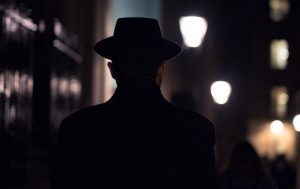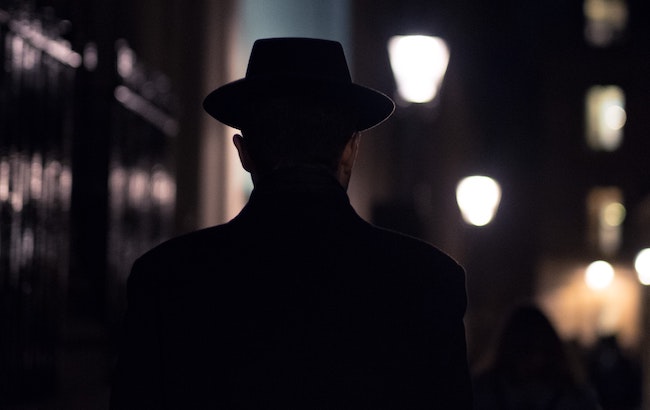
The Talmud identifies the episode of Kamtza and Bar Kamtza as the incident which precipitated the destruction of Jerusalem. An individual who made a banquet sent an attendant to invite his friend Kamtza. However, the attendant erred, inviting Bar Kamtza instead. When the host saw Bar Kamtza sitting amongst the guests at his banquet, he proclaimed “Let see that man is the enemy of that man. What are you doing here?” He subsequently proceeded to evict Bar Kamtza. The Talmud relates that to avenge his public humiliation, Bar Kamtza went to the Roman authorities and slandered the Jews, which ultimately resulted in the tragic destruction of Jerusalem{1}. The aforementioned narrative is an illustration of the fact that the Beis Hamikdash was destroyed as a result of “sinas chinam” – “baseless hatred{2}.” What is baseless hatred? Unless a person has psychopathic tendencies, why would he hate for no reason?
The host’s reaction, “Let see that man is the enemy of that man” requires further elaboration. The general interpretation of this passage is that Bar Kamtza is the host’s enemy. Why would the host refer to himself in the third person, as “that man”? Furthermore, if this is an example of baseless hatred, the host’s reaction should be visceral; why does he speak in an analytical tone, “Let see”? Finally, why is it Kamtza and Bar Kamtza who are denoted as being responsible for the destruction of Jerusalem? Should not the host be held accountable rather than Kamtza?
A person usually does not harbor feelings of hatred for another human being unless he perceives that that individual has either harmed him or possesses something which he deserves. However, there is an exception to this norm which has unfortunately divided Jewish communities throughout the world from the time of their inception; that is, the perception that a person’s friends may not associate with his enemies, and for them to do so would be considered betrayal. A person with such a perception expects his friends to feel the same disdain for his enemies as he does, to hate his enemies simply because he does; this is “sinas chinam” – “baseless hatred”.
The original dispute in the Talmud was between Kamtza and Bar Kamtza, as indicated by the host’s reaction “Let see that man (Bar Kamtza) is an enemy of that man (Kamtza)”; the host is not referring to himself in the third person, rather he is referring to his friend Kamtza. Therefore, the host does not react emotionally, but with the intellectual understanding of a person who maintains the perception that since Bar Kamtza is an enemy of his friend Kamtza, he too should hate Bar Kamtza. It is for this reason that the Talmud states that Jerusalem was destroyed because of Kamtza and Bar Kamtza; it was their dispute coupled with Kamtza’s insistence that his friends not associate with Bar Kamtza which precipitated the host’s sinas chinam.
1.Gittin 55b
2.Yoma 9b
It’s Your Responsibility Too
“These are the words that Moshe spoke to all Yisroel…”(1:1)
Sefer Devarim begins with Bnei Yisroel at the threshold of Eretz Yisroel. The entire Sefer spans the last five weeks of Moshe’s life and records the rebuke that Moshe gave to Bnei Yisroel prior to his death. Parshas Devarim enumerates a list of places where Moshe spoke to Bnei Yisroel{1}. The Midrash notes that there is no historical basis upon which to substantiate the existence of these places, rather their names are veiled allusions to all of the transgressions perpetrated by Bnei Yisroel while they were in the desert{2}. Rashi comments that Moshe only alluded to the transgressions, rather than mentioning them explicitly because of the dignity of Bnei Yisroel{3}. Throughout the earlier sections of the Torah we find Bnei Yisroel harshly castigated for these inappropriate actions and their transgressions magnified. Why is this rebuke different than those delivered in earlier parshios?
The verse emphasizes that Moshe spoke “to the entire nation of Israel” – “el Kol Yisroel{4}.” Rashi cites the Sifri who explains that everyone had to be present, for if Moshe had only rebuked some of Bnei Yisroel, those who were not present would have claimed that had they been there, they would have been able to defend themselves from Moshe’s accusations. Therefore, it was necessary for the entire Bnei Yisroel to be present, so that no one could exclude himself from Moshe’s critique{5}. Again we find an element of this rebuke which does not exist in any prior castigation.
In order to explain the aforementioned difficulty, it is first necessary to address another problem. The Midrash interprets the names of the places where Moshe spoke to Bnei Yisroel as an allusion to their sins. Among the sins recorded are the complaints which occurred immediately after leaving Egypt, the spies’ evil speech, the golden calf, dissatisfaction with the manna, and Korach’s rebellion. Almost all of these transgressions were not committed by the people who stood before Moshe, rather by the “dor hamidbar”, the generation of people in the desert who were no longer living. Why did Moshe castigate the people for the sins of the earlier generation?
According to Torah law, an individual can be held accountable for the sins of his parents only if he continues in their evil path. If he does not follow in the evil ways of his parents, he is not held accountable for their behavior{6}. However, this law is only true on an individual level. On a national level, responsibility for the transgressions of earlier generations is always borne by the citizens of the nation, even if the citizens have no connection to the misdeeds of their ancestors. The reason for this is that a citizen of a nation is part of the same constant entity as that to which his predecessors belonged. He is a shareholder in the unchanging corporate entity which defines the nation, and as such, is responsible for any transgressions or atrocities perpetrated by the national entity. Culpability is not dependent upon whether or not the individual was involved in the misdeed.
Moshe was teaching the generation entering Eretz Yisroel that it was their responsibility to rectify the damage caused by their predecessors. They could not disassociate themselves from the actions of their ancestors by claiming that they were not pursuing the misdeeds of the earlier generations. Moshe was addressing them as the inheritors of the corporate entity of Israel, not as the children of the generation that left Egypt. Consequently, since they were not the perpetrators of these acts, they were not subject to the same harsh castigation as the earlier generation, and these acts were not magnified as they were in earlier sections of the Torah which addressed the perpetrators directly.
It is specifically this form of rebuke which required the presence of the entire nation. Since they did not perpetuate the acts for which Moshe was criticizing them, they could have had the misconception that as long as they themselves did not engage in the same grievous behavior, they could not be held accountable for those sins. Therefore, Moshe required that all of Bnei Yisroel be present so that he could explain to them that their culpability stemmed from their national responsibility, and as such, they were required to rectify the wrongdoings of their ancestors.
1.1:1 2.Avos D’Rav Nosson 34:1
3.1:1
4.Ibid
5.Ibid
6.Berachos 7a, Rashi Shemos 34:7


